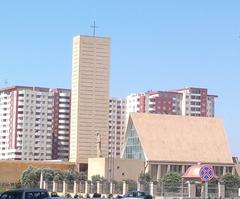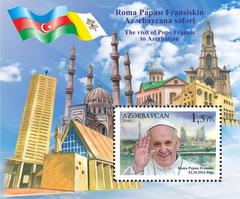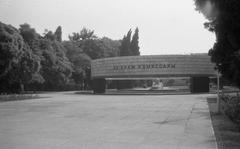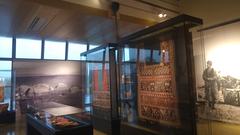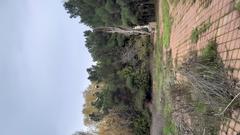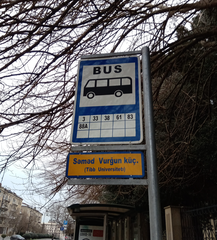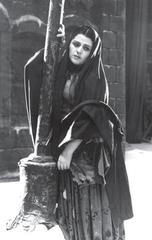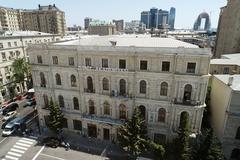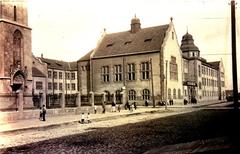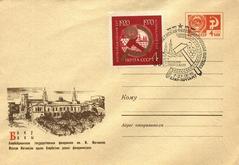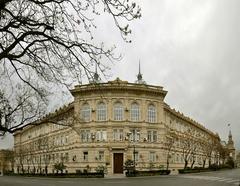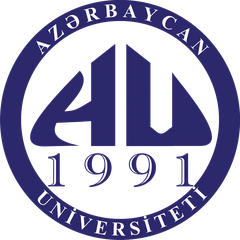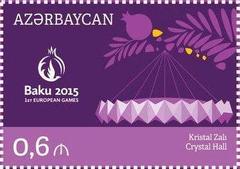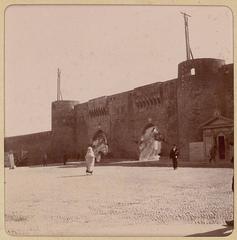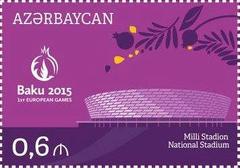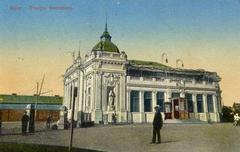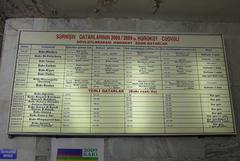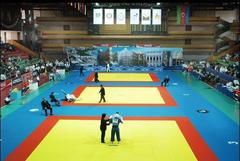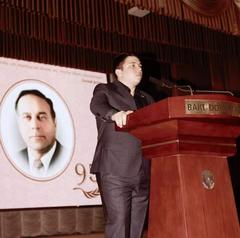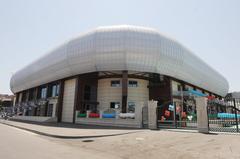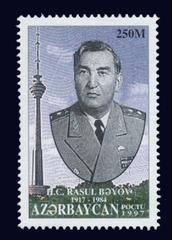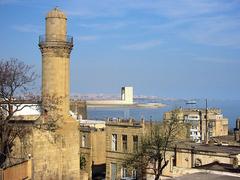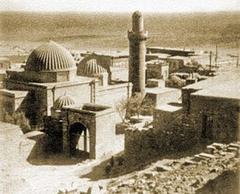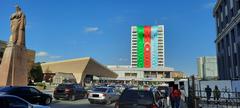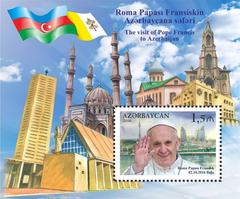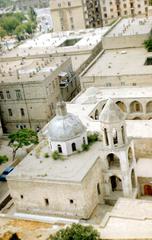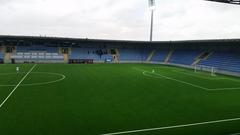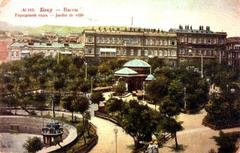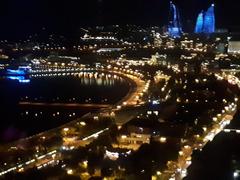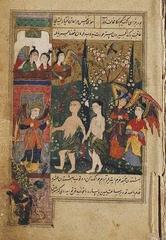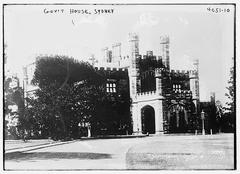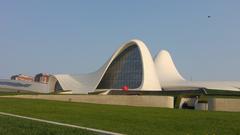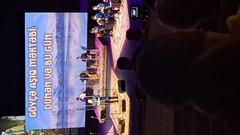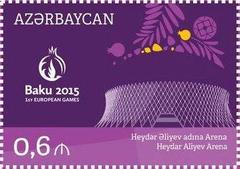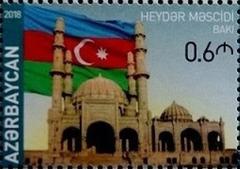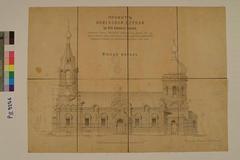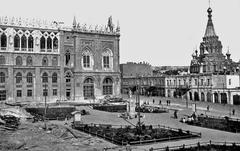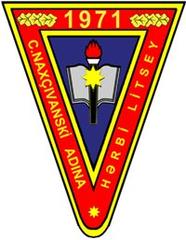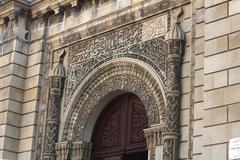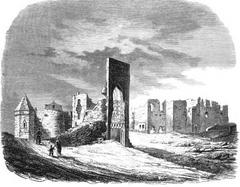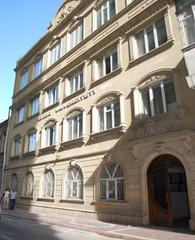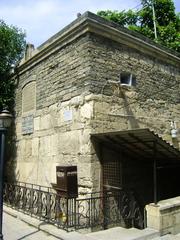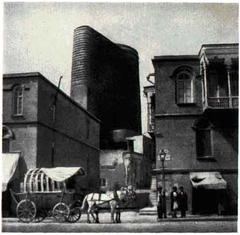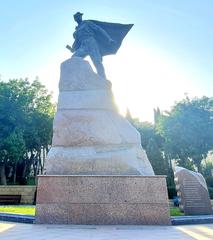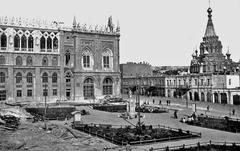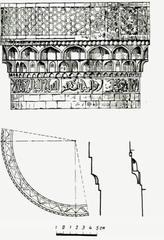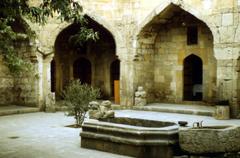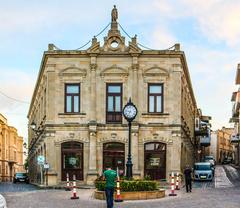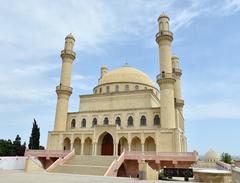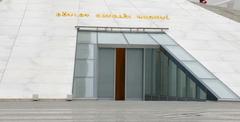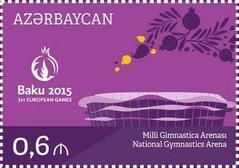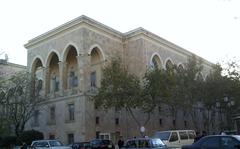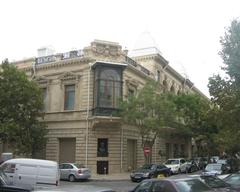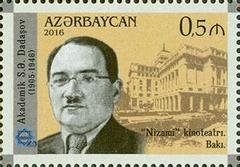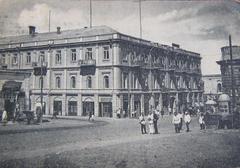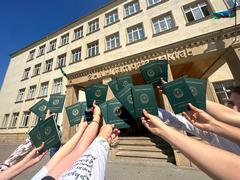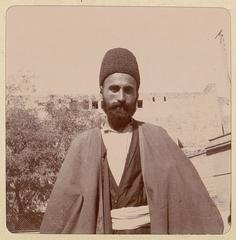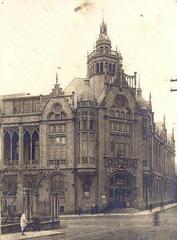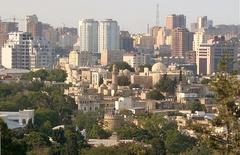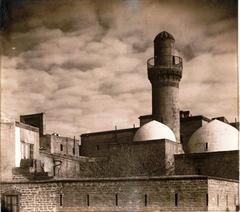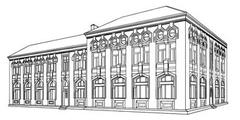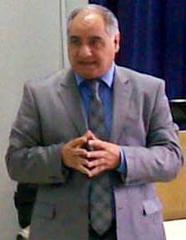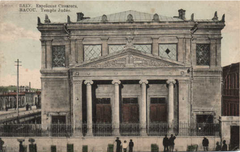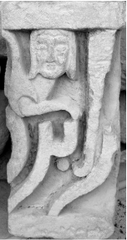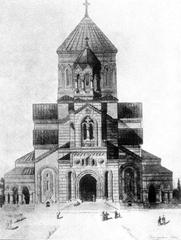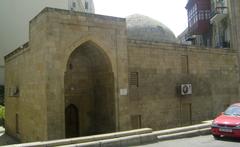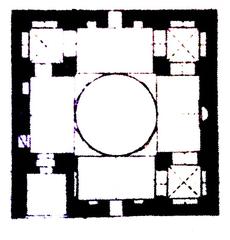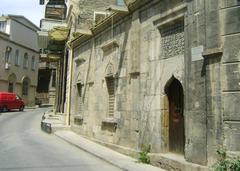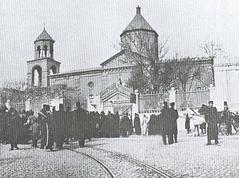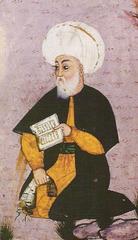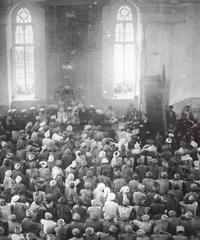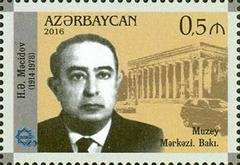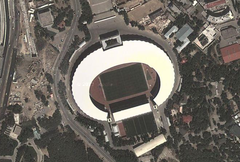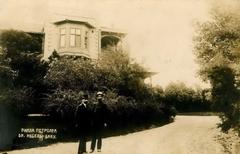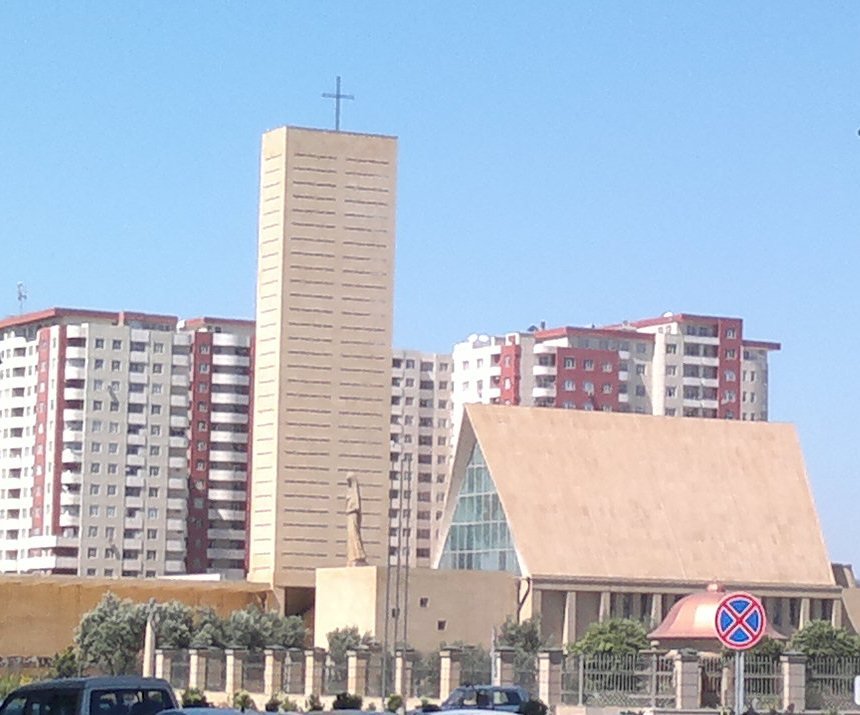
Church of the Immaculate Conception Baku: Visiting Hours, Tickets, and Historical Significance
Date: 03/07/2025
Introduction
The Church of the Immaculate Conception in Baku is a profound emblem of Azerbaijan’s multicultural heritage and religious diversity. This guide provides a detailed account of the church’s history, architectural evolution, visitor information—including hours, tickets, accessibility, and nearby attractions—and its role as a center of faith, cultural exchange, and social outreach in the capital of Azerbaijan.
Table of Contents
- Origins and Early Development
- Destruction and Soviet Suppression
- Revival and Modern Church Construction
- Architectural Features and Artistic Significance
- Visiting Information
- Community and Cultural Impact
- Frequently Asked Questions (FAQs)
- Conclusion and Call to Action
- Sources
Origins and Early Development
The roots of the Church of the Immaculate Conception in Baku reach back to the late 19th century, a period marked by the city’s rapid expansion during the oil boom. The Catholic parish, formally recognized in 1882, grew as European—particularly Polish—professionals and workers settled in Baku (en-academic.com). Initially, services were held in private homes. Persistent efforts led to approval for a dedicated church in 1894, but financial constraints delayed construction until 1908. The original church, designed by Polish architect Józef Płoszko, was completed in 1912 and quickly became a spiritual home for the growing Catholic community (en-academic.com).
Destruction and Soviet Suppression
The church’s fate changed dramatically during the Soviet era. In the early 1930s, anti-religious campaigns led to the closure and eventual demolition of the church by 1939 (ati.az). The parish priest, Stefan Demurov, was arrested and died in a labor camp. The site was subsequently used for secular purposes, reflecting the broader suppression of religious life in Azerbaijan (en-academic.com).
Revival and Modern Church Construction
After Azerbaijan’s independence in the 1990s, there was a revival of religious communities. The Catholic parish was re-established in 1997 and, following a visit by Pope John Paul II in 2002, the Azerbaijani government granted land for a new church. Designed by Italian architect Paolo Ruggiero, the modern Church of the Immaculate Conception was constructed and consecrated in 2007, symbolizing a renewal of Catholic life in Baku (catholic.az).
Architectural Features and Artistic Significance
The new church, located on Shamil Azizbayov Street, is a postmodern structure with neo-Gothic echoes. Its façade features pointed arches and vertical lines, referencing the original Gothic Revival church. The prominent statue of the Virgin Mary above the entrance was crafted by Azerbaijani sculptors and represents the blending of local artistry with Catholic tradition. The interior, accommodating 200–300 worshippers, is filled with light from tall, narrow windows, creating a serene atmosphere for reflection and prayer (catholic.az). The church also houses a pastoral center and is the administrative hub of Azerbaijan’s Catholic community.
Visiting Information
Visiting Hours
- Monday to Saturday: 9:00 AM – 6:00 PM
- Sunday: 8:00 AM – 7:00 PM
- Mass Times:
- Sundays: 10:00 AM (Azerbaijani), 12:00 PM (English), 2:00 PM (Russian)
- Weekdays: Variable (contact parish for details)
Tickets and Admission
- Admission: Free of charge
- Donations: Welcome but not required
Accessibility
- Wheelchair accessible with ramps and accessible restrooms
- Parking available nearby
- Easily reachable by public transport (near Khatai Metro Station and major bus routes)
Tours and Events
- Guided Tours: Available upon request; contact the parish in advance
- Special Events: The church hosts concerts, interfaith gatherings, and religious celebrations, especially during Christmas, Easter, and the Feast of the Immaculate Conception (December 8)
- Visitor Etiquette: Modest dress required; photography allowed outside of services; maintain silence during Mass
Nearby Attractions
- Historical Sites: Maiden Tower, Palace of the Shirvanshahs, Holy Myrrhbearers Cathedral, Russian Orthodox Church of Michael the Archangel
- Cultural Amenities: Cafés, shops, and the Caspian Sea promenade are within walking distance
Community and Cultural Impact
The Church of the Immaculate Conception serves as the main center for Azerbaijan’s Catholic community, administered by the Salesian Order and supported by religious sisters engaged in charitable work. The church fosters interfaith dialogue, social outreach (including a shelter for the homeless), and cultural understanding, reflecting Azerbaijan’s commitment to religious tolerance (multikulturalizm.gov.az). Its presence underscores Baku’s identity as a city of diverse faiths and peaceful coexistence (shunculture.com).
Frequently Asked Questions (FAQs)
Q: What are the Church’s visiting hours?
A: Open Monday to Saturday 9:00 AM–6:00 PM, Sunday 8:00 AM–7:00 PM. Mass times vary; contact the parish for details.
Q: Is there an entrance fee or ticket required?
A: No, admission is free; donations are appreciated.
Q: Are guided tours available?
A: Yes, by prior arrangement with the parish office.
Q: Is the church wheelchair accessible?
A: Yes, ramps and accessible restrooms are available.
Q: Which languages are Masses conducted in?
A: Azerbaijani, English, and Russian.
Q: Can I take photographs?
A: Yes, except during services (unless permitted).
Conclusion and Call to Action
The Church of the Immaculate Conception in Baku stands as a testament to resilience, faith, and Azerbaijan’s embrace of religious pluralism. Whether you are drawn by its rich history, stunning architecture, or vibrant parish life, the church is an essential stop for anyone exploring Baku’s cultural landscape. Plan your visit, participate in a guided tour, and experience firsthand a living symbol of interfaith harmony and community spirit.
For updated information, events, and guided tour bookings, contact the parish office or download the Audiala app for personalized visitor experiences. Stay connected via social media for news and updates on Baku’s religious and historical sites.
